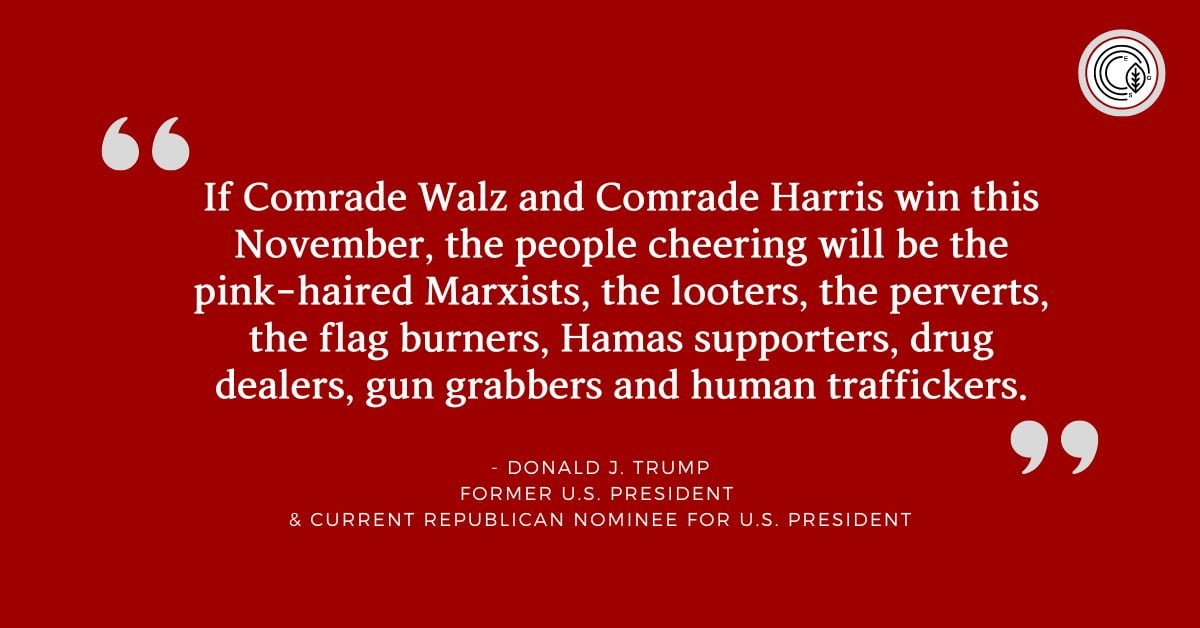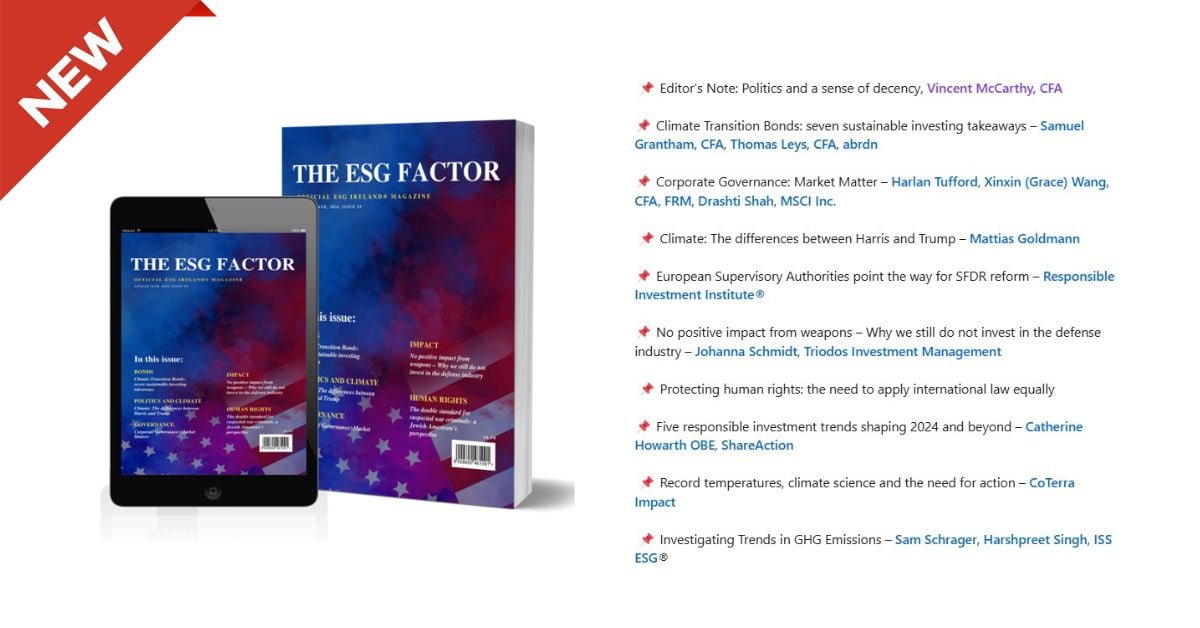U.S. Presidential Election
Will Decency Matter to Voters?

Written by Vincent McCarthy, CFA
Editor’s Note, The ESG Factor Magazine Issue, Issue 19 l Q3 2024
In the latest issue of The ESG Factor Magazine we feature articles covering aspects of responsible investing and sustainable development, including issues such as regulation, climate change, war, human rights, and humanitarian law. The outcome of the U.S. Presidential election in November will influence how these issues are prioritised by the U.S. government over the next four years. As the world’s main superpower, the impact of decisions made in Washington D.C. reverberates across the globe.
Division, Extremes and Contradictions
There are many things to like about the United States, but it is also a country that is full of extremes and contradictions. Politicians who shout loudest about ‘protecting freedom’ often do the opposite. While they support restricting a woman’s right to choose, they fiercely defend the right to bear arms, school shooting after school shooting. The U.S. is the richest country in the world, yet there are more than 42 million people living on food stamps. At the same time, over 40% of the adult population is now considered obese.
On the global stage – under the leadership of Republicans and Democrats – the U.S. has a history of starting wars, overthrowing governments, funding apartheid, and supporting dictatorial regimes to protect their interests abroad. These actions often stand in stark contrast to the principles of democracy and human rights that the U.S. purports to uphold.
The End of Democracy?
Political commentators warn that it will be the end of democracy if Donald Trump wins the election. Donald Trump, on the other hand, claims it will be the end of democracy if he loses. At a campaign rally in Montana on August 9th, former President Donald Trump warned that the Democratic ticket of Kamala Harris and Tim Walz would turn the U.S. into a communist country, stating:
“If Comrade Walz and Comrade Harris win this November, the people cheering will be the pink-haired Marxists, the looters, the perverts, the flag burners, Hamas supporters, drug dealers, gun grabbers and human traffickers”.
Such rhetoric taps into deep-seated fears, reminiscent of the McCarthy era, when the mere mention of communism was enough to incite public panic. Fear is a powerful tool, but voters may eventually realise that a great leader does not speak this way. If that happens, Donald Trump may find his power rapidly slipping away. The U.S. Presidential election result may come down to how much decency matters to voters.

A Historical Echo: McCarthyism
In the early 1950’s US senator Joseph McCarthy rose to prominence through a ruthless campaign against suspected communists in the US government and its institutions. This period, known as the ‘Red Scare,’ was marked by widespread fear of communism’s global spread. McCarthy, leveraging this fear, cultivated a persona as an anti-communist crusader, positioning himself as a patriot fighting for American freedom.
McCarthy’s aggressive tactics eventually led him to target the U.S. Army, accusing them of “lax security at a top-secret facility”. In response, the Army hired a lawyer named Joe Welch to defend their case. McCarthy’s downfall began during the televised hearings when he accused one of Welch’s colleagues of having ties to a communist organisation.
The U.S. Senate’s website describes this pivotal exchange:
“As an amazed television audience looked on, Welch responded with the immortal lines that ultimately ended McCarthy’s career: “Until this moment, Senator, I think I never really gauged your cruelty or your recklessness.” When McCarthy tried to continue his attack, Welch angrily interrupted, “Let us not assassinate this lad further, senator. You have done enough. Have you no sense of decency?”
This moment was instrumental in turning public opinion against McCarthy. As his true character was revealed “his immense national popularity evaporated overnight”. Yet, McCarthy’s tactics, referred to as McCarthyism, persist in politics today. The current U.S. presidential election is proof of that.
Conclusion: A call for Decency
There is ample room to do better, on both the domestic and foreign policy fronts, for whoever becomes the next U.S. President. While Barack Obama inspired the audacity to hope, his eight years in the oval office remind us of the limits of Presidential power to bring about change. Still, irrespective of political beliefs, the character of the individual holding the office matters.
The President reflects the country, its people, and their values. When people vote in November, they should choose a leader who, at the very least, has a sense of decency. When the President lacks decency in how they speak and treat others, it empowers others to act the same way. The outcome of the election will shape not only the future of the United States but also influence global efforts to build a more secure and sustainable world.
End
Vincent McCarthy, CFA
[For those interested in US history, these are three books that I think are worth reading: A People’s History of the United States, by Howard Zinn; Legacy of Ashes: The History of the CIA, by Tim Weiner; The Ten Thousand Day War: Vietnam 1945-1975 by Michael Maclear]
Join our network of informed decision makers


